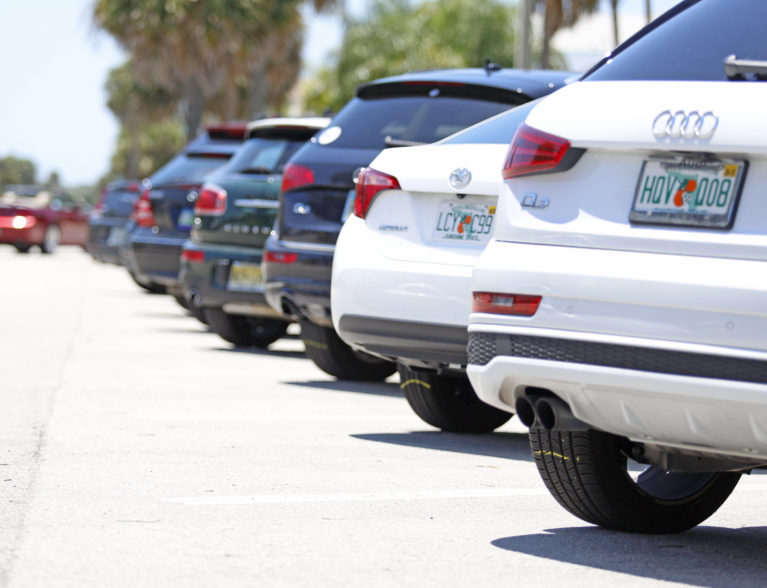
Beachside business owners might have to chip in to help cover the cost of adding parking spaces they say they desperately need to avoid losing business.
City officials are considering several financing options – including implementing a special assessment for business owners – to pay for the addition of 79 parking spaces in front of multi-family housing or commercial buildings on east-west streets near the problem area of Ocean and Cardinal drives.
The spaces would cost around $400,000 for curbing, gutters and pavement, along with an estimated $125,000 for engineering services, but the city has no dedicated funding for the project, so it might ask shop owners to pitch in.
“We should be paying 50 percent of it … and I would encourage staff to come up with a way they think is reasonable and bring it back to us to for the other 50 percent,” Councilman Robert Brackett said.
City staff also are considering a special taxing district. Details about the potential district, which would entail a geographical boundary and require funds collected annually to be spent solely on parking – will likely be presented to the City Council for consideration at its March 17 meeting, city officials said.
“The City Council recognized there would be some public uses of spaces and I think that’s why they had a discussion … that it might be appropriate for the city to pay 50 percent and the district to pay the other 50 percent,” City Manager Monte Falls said.
Nancy Cook, owner of Twig Swim & Sportswear Shop on Ocean Drive, said she wouldn’t mind paying her fair share to remedy the problem she believes is causing shops to lose customers who can’t find a space. Still, Cook had questions about how the taxing district would work.
“What would the tax be? Where would it go to? What would it fund?” Cook asked.
The establishment of a special taxing district would require a public hearing and for beachside business owners to be on board, Falls said. The assessment would show up on the business owner’s tax bill.
Another way to fund the spaces would be to use revenue from the 1-cent sales tax, which is typically used for road improvement projects, officials said. The city last year collected $2.3 million from the sales tax.
Any added spaces, however, probably won’t be installed by the end of the year. The project would most likely be included in the next budget year and begin sometime next year, Falls said.
Kimley-Horn, which was hired by the city last year to find a fix, has held public workshops for input and analyzed more than 3,000 beachside parking spaces to determine who owns the spaces and how they are being used. The company found a majority of the 3,108 beachside parking spaces are privately owned, with only about 750 public spaces.
The company identified locations where 79 spaces could be added – a solution that would be much less expensive than building a parking garage near the beachside business district.
The City Council earlier rejected the garage option, which would have cost between $3 million and $4.8 million and added about the same number of spaces.



